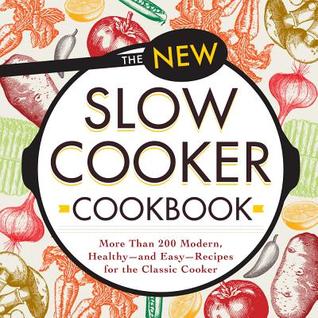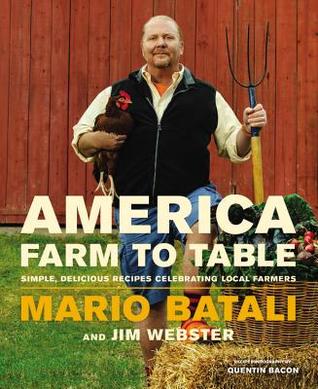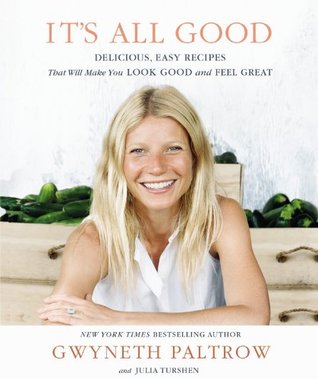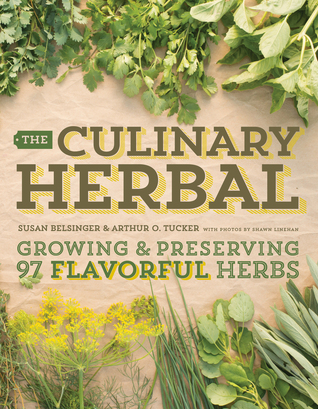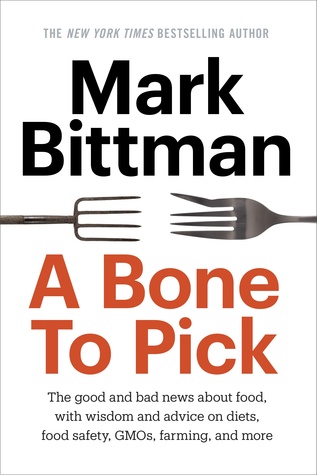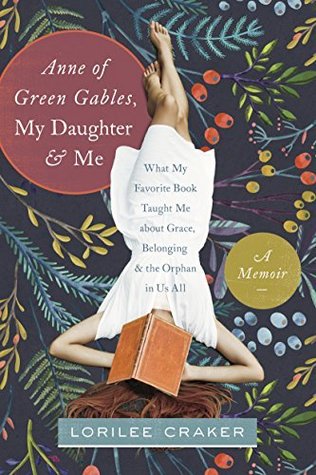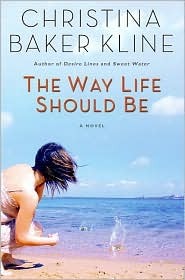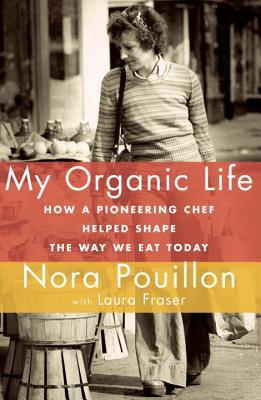Thinner in 30 by Jenna Wolfe
Most people want to jump in and start a drastic plan of diet and/or exercise and then either burn out or don't create some sustainable. Jenna Wolfe's plan takes you through small changes over 30 days to transform your health. Some of her tips are easy - drink 20 sips of water as soon as you wake up, disengage for 5 minutes a day, etc. While also addressing eating habits and adding exercise too. But all the tips build on each other so you're not overwhelmed the first week. I really like the idea and all the changes seem pretty easy to incorporate while also being challenging over time. Even though I did manage to hurt myself in week 2 (really.) I'm still working on doing this 30 day challenge. I really think if you commit this would be an easy way to jump start a workout plan.
Blood Will Out by Walter Kirn
I thought this was going to be a really interesting book. The author Walter Kirn delivers a rescued dog to a member of the Rockefeller family in New York City. The meeting turns into a friendship and Kirn hopes that Clark Rockefeller might inspire some characters in some of future books. But, Kirn quickly realizes that Clark if often off-putting and selfish, but just charming enough to keep pulling him back in. In 2008 Clark is accused of kidnapping his daughter and during that investigation it comes out that he is really Christian Gerhartsreiter, a German immigrant who is linked to a 1985 unsolved murder and dozens of fake identities. Kirn is unsettled and wonders how he fell for the fake Rockefeller's act. After digging into Gerhartsrieter's past, Kirn realizes that he hasn't created new identities, but taken on existing ones - either from real people or characters in books and films. Many of Gerhartsrieter's stories and exploits are taken directly from old noir films that as Kirn watches them during the murder trial he begins to unravel Gerhartsreiter's lies.
I didn't like this book as much as I thought I would, but it should make for an interesting book club discussion. The second half is MUCH better than the first half in my opinion. Honestly neither Kirn or Clark Rockefeller are very likable and I was surprised that Gerhartsrieter conned so many people for so long. Overall, it was OK, but not great.
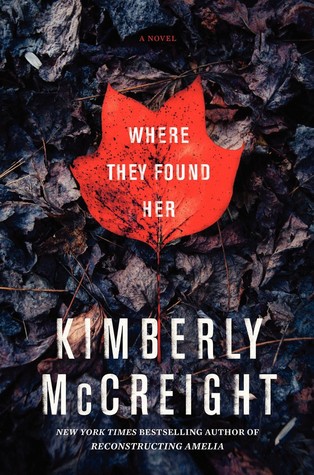
Where They Found Her by Kimberly McCreight
In the small university town of Ridgedale, NJ the body of an infant is found on the edge of the university campus. Molly Sanderson is new in town and working for the local paper. She is assigned to cover the case even though she is still struggling with the loss of her own baby. Sandy Mendelson is a high school drop out who's looking for her missing mother. Barbara Carlson is the wife of the Ridgedale Chief of Police who is dealing with her son's sudden behavioral problems. Molly, Sandy, and Barbara all have a different connection to this crime and while they don't know it at first, they are all connected to each other as well. This case will unearth some deeply buried secrets in Ridgedale and change each of these women's lives as well.
Overall, I wasn't super impressed with this book. I guessed who had the baby in the first few chapters. I wanted to see what happened so I kept reading, but it wasn't great. I also don't like when an author makes a character super vulgar for no reason. The first chapter with Sandy was so over-the-top that it was ridiculous and then was much more toned down in the rest of the book. Even though I finished it I wouldn't really recommend this one.
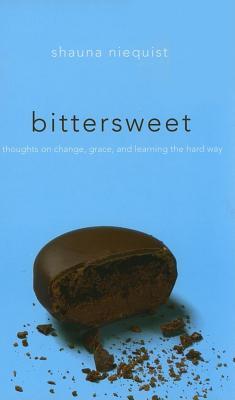
Bittersweet by Shauna Niequist
Bittersweet is about finding the beauty in pain and brokenness and knowing that without the dark things we wouldn't appreciate the light as much. Each chapter is a personal essay from Niequist mostly about how she managed to still find beauty and good things during one of the darkest seasons of her life - mainly through real connections with friends and family. I really LOVED this book. She does a great job of turning her personal stories and situations into things almost anyone could relate to. I will probably end up buying this book because it just really spoke to me. I would highly recommend this one!
Some of the MANY quotes I really liked:
"I'm able to see now that what made that season feel so terrible to me were not the changes. What made that season feel so terrible is that I lost track of some of the crucial beliefs and practices that every Christian must carry with them...Looking back now I can see that it was more than anything a failure to believe in the story of who God is and what he is doing in this world. Instead of living that story - one of sacrifice and purpose and character - I began to live a much smaller story, and that story was only about me...I believe that faith is less like following a GPS through a precise grid of city blocks, and more like being out at sea: a tricky journey, nonlinear and winding, the wind kicking up and then stalling. But what I really wanted in the middle of it all was some dry land and computer-woman's soothing voice leading me through the mess." (p. 17-18)
"I remember sitting around the table with the housechurch and my parents on my thirtieth birthday, long after we'd finished eating, telling stories and laughing together. At one point my dad said, 'You know this doesn't happen over and over in your life. You don't get that many experiences of friendship like the ones you all share.' We nodded, thankful in that moment. But I think we wanted to believe he was wrong, and that friendships like these would pop up all over our lives like dandelions. Now having said goodbye, we know that he was right, and that the richness and connectedness of that season was indeed rare." (p. 32)
"That's why travel is so important, among other reasons: to get far enough away from our everyday lives to see those lives with new clarity." (p. 79)
"I've been in what seems like a thousand groups that never really came together, and then just a very few that really did. And I'm learning a few things about both kinds of groups. First, I think a lot of groups, church-based or otherwise, fail because they can't find themselves under the weight of expectations placed upon them. Sometimes, with the best of intentions, when we start small groups or accountability groups or life groups, we saddle them with the idea that they have to be deeply intimate and transformational right at the first meeting. We force connections that aren't there, fumble through topics and conversations and routines that feel forced and hollow, and then we wonder why we don't actually want to go that often...There have been a few times - two, to be specific - when I've been a part of an official small group that's really connected and become what a small group should be...But I've been a part of a whole bunch of official groups that felt forced or awkward, where one person's expectations weighed down the whole, or it felt like a bad first date, or someone shut down every time things got a little honest. I know so many people who are just done with the whole official small group thing, and I understand why. This is what I would say to them: find connection and community wherever it already is, even in tiny ways, in your life. Take a risk and cultivate the tiniest possibility of connection, even in the unlikeliest of places. Sometimes it does work to set out together for intimacy, honesty, truth-telling. But more often, in my experience, you find those things by going through the back door - serving together, cooking together, reading together." (p. 177-9)
"But when you're stuck, all you see are the ones that make you feel tiny and grey, like dryer lint." (p. 207)
"You don't know what the story is about when you're in the middle of it. You think you do, but you don't. You make up all kinds of possible story lines: this is about growing up. Or this is about living without fear. You can guess all you want, but you don't know. All you can do is keep walking. There is nothing worse than the middle. At the beginning, you have a little arrogance, loads of buoyancy. The journey, whatever it is, looks beautiful and bright, and you are filled with resolve and silver strength, sure that whatever the future holds, you'll face it with optimism and chutzpah...And the end is beautiful. You are wiser, better, deeper. You know things you didn't previously know, you've shed things you previously clung to. The end is revelation, resolution, a soft place to land. But, oh, the middle. I hate the middle. The middle is the fog, the exhaustion, the loneliness, the daily battle against despair and the nagging fear that tomorrow will be just like today, only you'll be wearier and less able to defend yourself against it. The middle is the lonely place, when you can't find words to say how deeply empty you feel, when you try to connect but you feel like thick glass is separating you from the rest of the world, isolating and deadening everything." (p. 216)
"I'm coming to think there are at least two kinds of pain. There's the anxiety and fear I felt when we couldn't sell our house. And then there's the sadness I felt when I lost the baby or when my grandma passed away. Very different kinds of pain. The first kind, I think, is the kind that invites us to grow. The second kind is the kind that invites us to mourn...It's sloppy theology to think that all suffering is good for us, or that it's a result of sin. All suffering can be used for good, over time, after mourning and healing, by God's graciousness. But sometimes it's just plain loss, not because you needed to grow, not because life or God or anything is teaching you any kind of lesson. The trick is knowing the difference between the two." (p. 234-5)

Mouse Guard: Legends of the Guard, vol. 3 by David Petersen
I always love the Mouse Guard books just because the illustrations are so fantastic. In this book it's time for the Winter Solstice storytelling contest to see who's bar tab at the June Alley Inn will be wiped clean with the best story. Each character's story is created and illustrated by a different author/illustrator with David Petersen's Mouse Guard illustrations tying everything together. It's a really quick read, but you could spend hours going back and studying the beautiful illustrations that often tell a better story than the written words. I just love David Petersen's work and this one is no exception!
A Bone to Pick by Mark Bittman
I was familiar with Mark Bittman and love a good food-related book, but I was pretty disappointed with this one. It's basically a collection of Bittman's food columns from The New York Times organized into 6 sections. While a lot of his writing makes good points, I just don't agree with his fundamental food beliefs. He goes on and on AND ON about how useless and terrible the USDA and FDA are at regulating our food system, then in the next breath he talks about how we NEED legislation to fix this corrupt and broken food system. So, where exactly are we going to find these un-corruptible legislatures to make everything great for everyone? I COMPLETELY agree with the fact that our food system is horrible and the government agencies supposedly responsible for it useless, but I'm on the Joel Salatin team of opting out of that shit. When you grow your own food and buy most of the rest from local farmers you KNOW there is no need for the government to get involved. He also talks a LOT about "changing" food/farming subsidies from supporting industrial monoculture and giving them to smaller farmers and even subsidies for people to cook at home - seriously?! Joel Salatin, Forrest Pritchard, and many, many others prove that you don't need government subsidies to be a successful farmer who can support yourself and others financially. So, since I just do NOT agree with his basic views I just wouldn't recommend this book. There are many other MUCH better food/farming/cooking books out there!
Here are some quotes I particularly did NOT agree with:
"Encourage and subsidize home cooking...We should provide food education for children (a new form of home ec, anyone?), cooking classes for anyone who wants them, and even cooking assistance for those unable to cook for themselves." (p. xiv) - Subsidize home cooking - WTF?!
[In speaking about New York's mayor Michael R. Bloomberg's proposed ban on the sale of sugar-sweetened beverages (SSB's) over one pint (16 ounces).] "The arguments against this ban mostly came from the 'right.' (There actually is no right and left here, only right and wrong.) (p. 74) - So basically he's saying if you disagree with Bloomberg's soda ban you're WRONG!
"Preventing chronic diseases - for the first time in history responsible for the majority of deaths - would not require massive public works programs like building water delivery or sewer systems but simply regulating the quality of our food and the quantity of nonfood we allow ourselves in ingest. It is not a matter of technology or of miracles, but of policy. Minor inconveniences and infringements that benefit everyone - like seat belts, gun control, and limiting our 'right' to smoke or drink - should take precedence over our 'right' to kill ourselves and one another." (p. 155) - "minor inconveniences" like not being able to decide what I want to eat or drink and buy with my own money!
"For all of the personal choices (like cooking, or supporting responsible farming) that can have a positive impact [on] our food system, the kinds of sweeping changes that many of us hope to see can't be accomplished without decisive action at the top. Whether we know it or not, federal and local governments, which are all too often beholden to special interests, are largely responsible for deciding what we eat, because they refuse to restrict the behavior of producers and marketers, who then infallibly choose the most profitable - not the most healthful or even least destructive - paths...While attempts to regulate our food choices are often decried as 'nanny-statism,' the consequences of insufficient (or misguided) government intervention are significant." (p. 189) - Does anyone else see the contradiction here?! The government is in the industrial food system's pocket and have f*%ked up the food system, but we need more government involvement to fix it - that sounds like a great plan to make things EVEN WORSE.

We Never Asked for Wings by Vanessa Diffenbaugh
Letty Espinosa is a single mom of two children, 15-year-old Alex and 6-year-old Luna. But, Letty's parents raised her children while she worked multiple jobs to support them all. Letty's life was so promising in high school, but she felt like she ruined her future when she got pregnant so young, then it was just a downward spiral into drinking to escape her feelings of failure. When Letty's father goes back to Mexico her mother follows, leaving Letty to finally be a parent to her children. At first Letty freaks out, but she soon realizes that she doesn't have a choice other than to jump in and start trying to be a parent. After a rough start Letty finally starts to find that she does have what it takes to really be there for her kids and make better choices. When her son Alex gets into trouble, Letty really steps up and takes care of things. This is a beautiful story of what it means to be a family and really make the hard choices in order to make a better life. You will fall in love with Alex who is so smart and tries so hard to create a different path than his mom and by the end you have a great deal of respect for how much Letty stepped up to the plate with her kids. It's also an eye-opening look at the vast differences between the "haves" and the "have-nots."
I really liked Vanessa Diffenbaugh's previous book The Language of Flowers, so I was really looking forward to her next book and she definitely didn't disappoint! I liked We Never Asked for Wings even more than her first book and can't wait to see what she comes out with next.
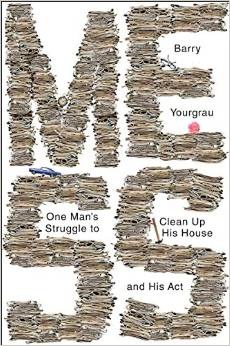
Mess: One Man's Struggle to Clean up His House and His Act by Barry Yourgrau
I LOVE shows like Hoarders and I've read other books about hoarding that were really good, so I was excited to read this one. Barry Yourgrau realizes he has a problem when his long-time girlfriend locks herself out and shows up at his house - but he won't let her inside and she hasn't been inside for over 5 years because of his clutter/hoarding. After that she gives him an ultimatum about cleaning up, which he recounts in this book. Reading this book must be what it feels like to be inside a hoarders mind because it was kind of all over the place and he is CONSTANTLY getting derailed anytime he attempts to clean. But, after 2 years he finally has his place cleaned up and can finally have people over again.
I found Yourgrau VERY hard to relate to - I'm not a hoarder, but he seemed very neurotic and scattered. I'm glad he finally got motivated to clean up, but the book was very slow and meandering. I didn't love it. I'd recommend Coming Clean by Kimberly Miller or Stuff by Randy Frost as much better books about hoarding - or just watch the TV show Hoarders.

The Guest Room by Chris Bohjalian
Richard Chapman offers to host his younger brother's bachelor party at his house because that way it's less likely to get out of control. He assumes there will probably be a stripper, but thinks it will be pretty tame. He was wrong. At the end of the bachelor party multiple guests have had sex with the "entertainment" and two people are dead. While Richard didn't cheat on his wife, he is still associated with a wild orgy gone that turned into murder. The aftermath of the party is devastating for Richard - his wife is contemplating leaving him, he is suspended from work, his house is now a crime scene, and one of the other party guests is trying to blackmail him. But Richard doesn't have the worst of it - the two girls who were the "entertainment" are now running for their lives. Told in alternating viewpoints from Richard and Alexandra, an Armenian teenager who was kidnapped into sex slavery, you see how both of their lives are profoundly changed from this one fateful night.
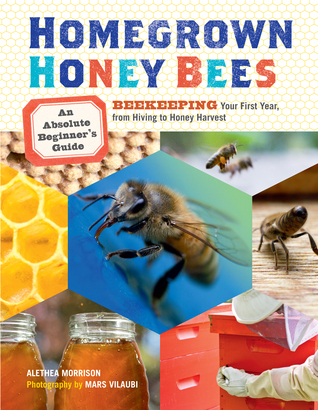
Homegrown Honey Bees by Alethea Morrison
This is a great overview for the beginning beekeeper. My mom gave me this book because she knew we eventually wanted to get bees and now that we're taking a 9 week beekeeping class I figured it would be a good time to read this book. The book definitely goes over much of what we've already covered in the class, but it's got LOTS of detailed pictures which help everything make more sense. There is a LOT to learn with beekeeping, so anything that can help it make more sense is worth checking out. I think the chapters on The First Month, The First Season, and The First Harvest will be good to refer back to once we've gotten our bees. Overall, I would highly recommend this book, but with anything like this I would also recommend a class too. We went through our county extension office and the class was affordable and VERY informative and helpful. The author also gives a few pages of resources that would be very helpful too.
